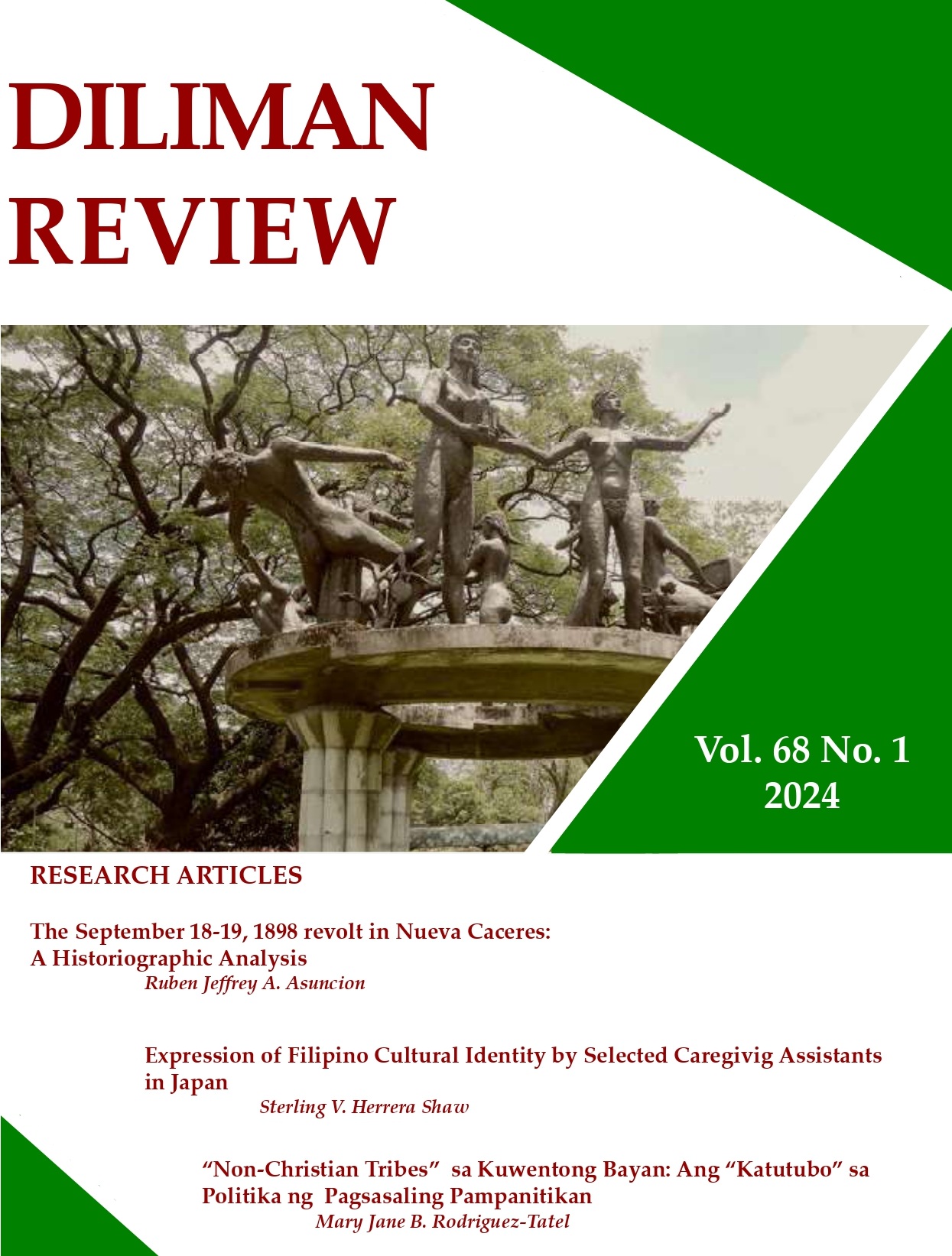Expression of Filipino Cultural Identity by Selected Caregiving Assistants in Japan
Abstract
This study aims to gain insight into the experiences of Filipino nurses working abroad in Japan. As a small-scale exploratory study, it consists of in-depth interviews with three Filipino nurses who now work in Japan in the same field. Unlike previous studies addressing migrant nurses in Japan, this study focuses on the element of cultural identity assertion rather than work in relation to migration policy or socioeconomics, or about specific aspects of work relationships or language usage. This study found that contrary to some previous research on Filipino identity in Japan, the informants of this study did assert their identity in various ways, such as in cooking Filipino foods, being more emotionally-connected to patients as a nurse, and insisting on more gender-equal relationship dynamics that reflect Filipino society. This is an area ripe for future research since the social aspects of medical practice are starkly different between Japan and the Philippines; investigation of how Filipinos navigate these differences should be addressed in diasporic studies. This study also makes use of an indigenous methodology, pagtatanong-tanong, an interviewing style devised by scholars of Sikolohiyang Pilipino and Pilipinolohiya. The research also raises the point that analysis of various socioeconomic levels of Filipino migrant workers is needed to make a more holistic understanding of how Filipinos assert or do not assert their Filipino identity abroad.


